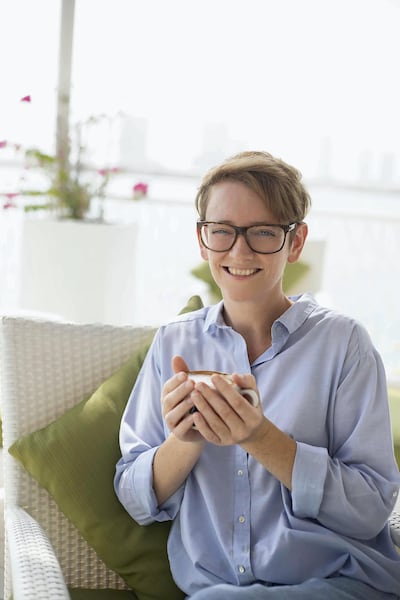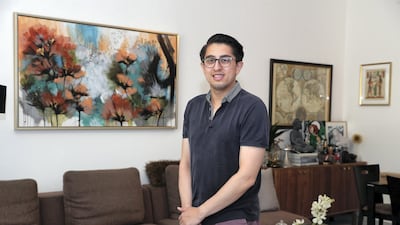With the coronavirus pandemic reinforcing the need to diversify investment portfolios, some UAE residents have begun to consider real estate as a stable asset class in uncertain times.
While investing in property comes with risks, like any asset class, for devotees it can offer capital appreciation, rental yields and a sense of security for the buyer as it is a touchable asset. It can also offer the chance to secure a second passport or citizenship.
“In the last few months, overall demand and the number of applications for residency programmes in the UK has increased vastly. This has led to more investment in UK real estate," says Sid Syed, director of Aqua Investments, a unit of Dubai real estate broker Aqua Properties which deals in international investments and citizenship programmes.
"Most investors are interested in capitalising on London while we also see increasing demand in the north of the UK. End users are looking for budget housing, especially in cities like Birmingham, Manchester and Liverpool."
Here, four UAE residents at various stages of the investment process, explain how Covid-19 has affected their foreign property purchases.
'The handover of my Manila apartment was delayed by four months'
Lloyd-Rosales Cocks, a property consultant with Dubai real estate broker LuxuryProperty.com, bought an off-plan two-bedroom penthouse in Makati, Manila, in 2016 for 13.5 million pesos (Dh992,000).
When the British-Filipino visited Manila in January this year, he was able to complete the snagging process on the apartment but could not obtain the keys to his new house. Instead, he used the time to purchase furniture for the property because furnished units tend to fetch higher rents in the city.
“Then, Manila went under lockdown because of Covid-19. Although I have a power of attorney in Manila, they weren’t able to collect the keys from the developer because of the lockdown measures. The furniture could not be delivered and was kept in the storehouse at a cost of Dh400 because we could not obtain access to the apartment. It was delivered only last week,” says Mr Rosales Cocks.
The property, which was originally scheduled to be handed over in February this year, was delivered in the second week of June because of the bank's delay in transferring funds to the developer amid Covid-19.
The real estate agent says he decided to buy property in 2016 because it was cheaper in comparison to Dubai and the UK at the time. His investment is expected to fetch a net rental yield of 7 per cent. “If you buy studios and one-beds, you can obtain higher returns in Manila. Demand has been higher than expected and I hope to rent out the unit very soon. The apartment has even seen capital appreciation in the past four years,” he adds.
Another motivation for the purchase was that buying off-plan units in Dubai requires a lump sum payment, whereas in the Philippines, he could put down a small down payment and then pay in monthly installments. Additionally, he was able to afford a penthouse in Manila compared to a studio in Dubai for the same price.
To finance the unit in Manila, he signed up for a mortgage with a local bank in the Philippines. He expects the rent of 90,000 pesos to cover his monthly mortgage repayments of 70,000 pesos and turn a small profit too. Mr Rosales Cocks intends to use a property management firm to rent out the apartment.
“If you are purchasing an investment property, know about the location and the developer credentials. If you want to buy for your use, see the unit in person or opt for a virtual viewing. If you aren’t comfortable with the latter, send someone you trust to view the place in person," he adds.
'I invested in Grenada to secure a second passport'
Mohammed Omair, a Pakistani, who runs multiple businesses, paid $250,000 (Dh918,125) for a two-bedroom apartment in Grenada in the Caribbean in the first week of April this year to obtain a second passport. This will also guarantee citizenship in the Caribbean for his children and parents. He also needs to pay an additional $10,000 worth of processing fees to the Grenada government.
“The passport is stronger compared to my home country and it will allow me to travel to other countries with ease. I have been promised 10 per cent rental yield for my Grenada property," he says.
"The process was easy and quick and entirely done virtually. Sitting in the UAE, I can obtain a new passport in three months. The money transfer is currently under process. Because of the shutdown, the money transfer was delayed,” said Mr Omair.
While Mr Omair has been planning to invest in property overseas to secure citizenship for the past six months, the best deal came up during the pandemic.
The Ajman resident, who owns a three-bedroom apartment in that emirate and another property in Jumeirah Village Circle, plans to rent out the Grenada apartment and use it occasionally as a holiday home.

'The UK shutdown delayed my property refurbishment'
Julie Talbot, from the UK, who has lived in Abu Dhabi since 2009, purchased a single-let, two-bedroom semi-detached property in northwest Manchester for £56,000 (Dh253,500) in June during the pandemic. Ms Talbot, who already owns 10 other properties in the UK and runs a virtual property business back home, was also overseeing refurbishment in other properties at the same time.
“That was a bit trickier. Maintenance work had to be initially stopped on those projects because it was hard to get materials like paint and plaster from the shops. As the lockdown eased, it became easier to obtain materials. Work carried on but it was a bit slower,” she says.
She says the UK government stopped people from moving houses during the movement restrictions, but estate agents were allowed to complete sales of new properties where offers had already been accepted.
"The legal process needed a bit of work but that had nothing to do with the lockdown. Even if there was no lockdown, the property would have been handed over in early June," Ms Talbot adds.
She plans to convert her new buy into a three-bedroom family home and eventually let it out. She hopes to secure an 8 per cent gross yield for the Manchester property.
“We hold property for the long term. So, we are comfortable buying during uncertain times such as the pandemic. We are continually adding to our portfolio and want to keep that momentum going," she says. "If we pause, then we lose the pipeline and our team of workers might not be available. We always buy existing properties, maybe 100 years old. We tend to find more value in those by adding refurbishments."
While most investors prefer to see a property in person than buying virtually, Ms Talbot says with the right systems and processes in place, that’s not the case any more.
“Don’t be put off by the distance. For instance, we have a ground team in the UK who do viewings on our behalf and make sure the properties meet our requirements,” she adds.
The mother of twin girls pays for all her UK property transactions in cash. When the refurbishment work is done and the tenants are in, they take out a mortgage. “It’s called the buy-refurbish-rent-refinance model. When we get to the refinance stage, our return will change as it will be calculated based on deposit monies left in the property – and the deposit money required will be dependent on the mortgage lender’s valuation of the property at that time,” Ms Talbot adds.
'I bought two shops to secure Turkish citizenship'
Fahad Khan, a Pakistani who runs a family business, wanted to invest in the UK to gain citizenship, but the five-year waiting period put him off. Instead, he invested $280,000 in two shops in Istanbul in Turkey, which also grants him a Turkish passport and a Turkish Businessperson Visa. This, he says, will then allow him to start a business in the UK on a five-year residency.
Mr Khan says the shops offer him net returns of 5 to 6 per cent. He decided to go ahead with this purchase during the pandemic because he had already set aside money for the investment. However, the timing also secured him a 6 to 7 per cent reduction on the purchase price.
“You need a property worth $250,000 to obtain a Turkish passport. My properties are around 80 per cent complete. Only properties in advanced stages of construction qualify for the citizenship programme. The good thing about investing in Turkey is that you only need to invest in the property for three years,” Mr Khan adds.
He says the deal also guarantees him capital appreciation and long-term rentals for five to 10 years. So far, Mr Khan has only paid the booking fee, which is 10 per cent of the price. This makes him eligible to obtain the property title deed. “Once the pandemic is over, I can travel to Turkey and take the next steps,” he adds.


